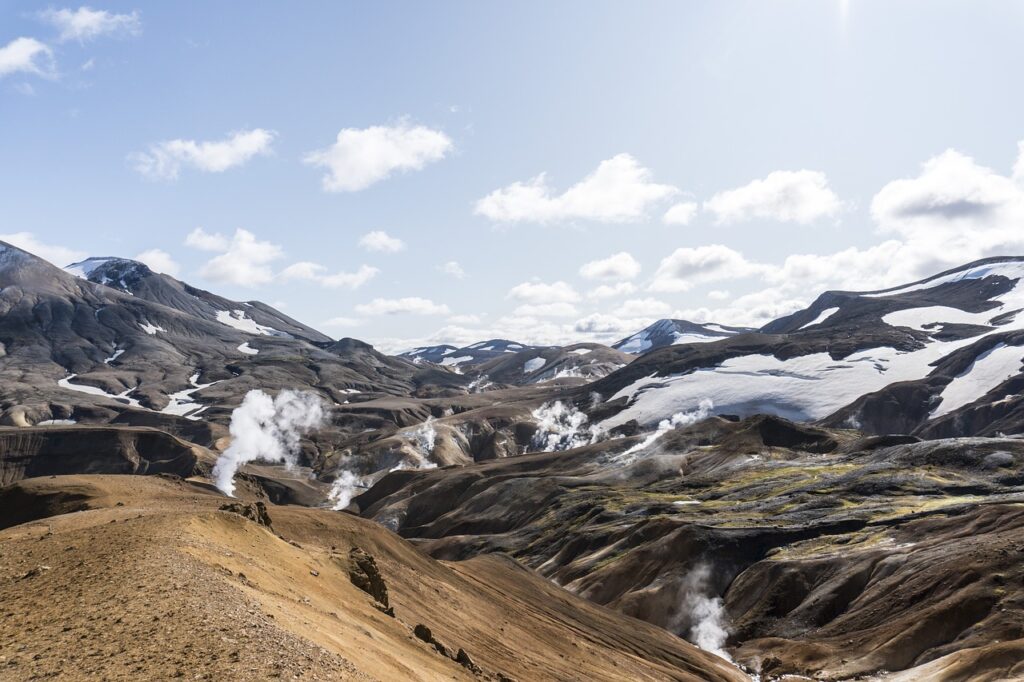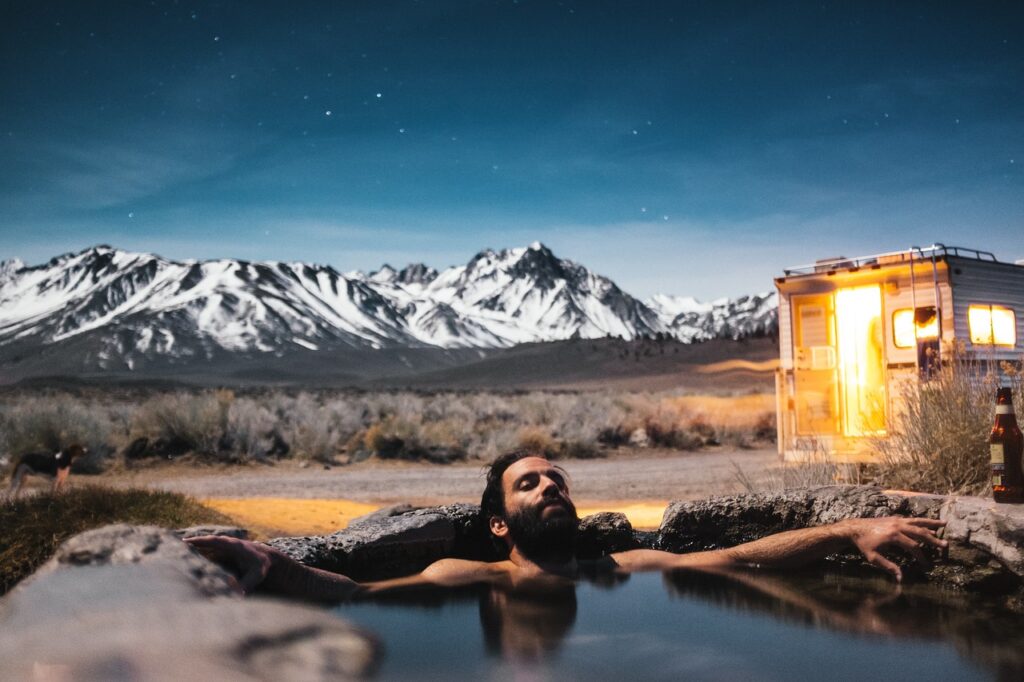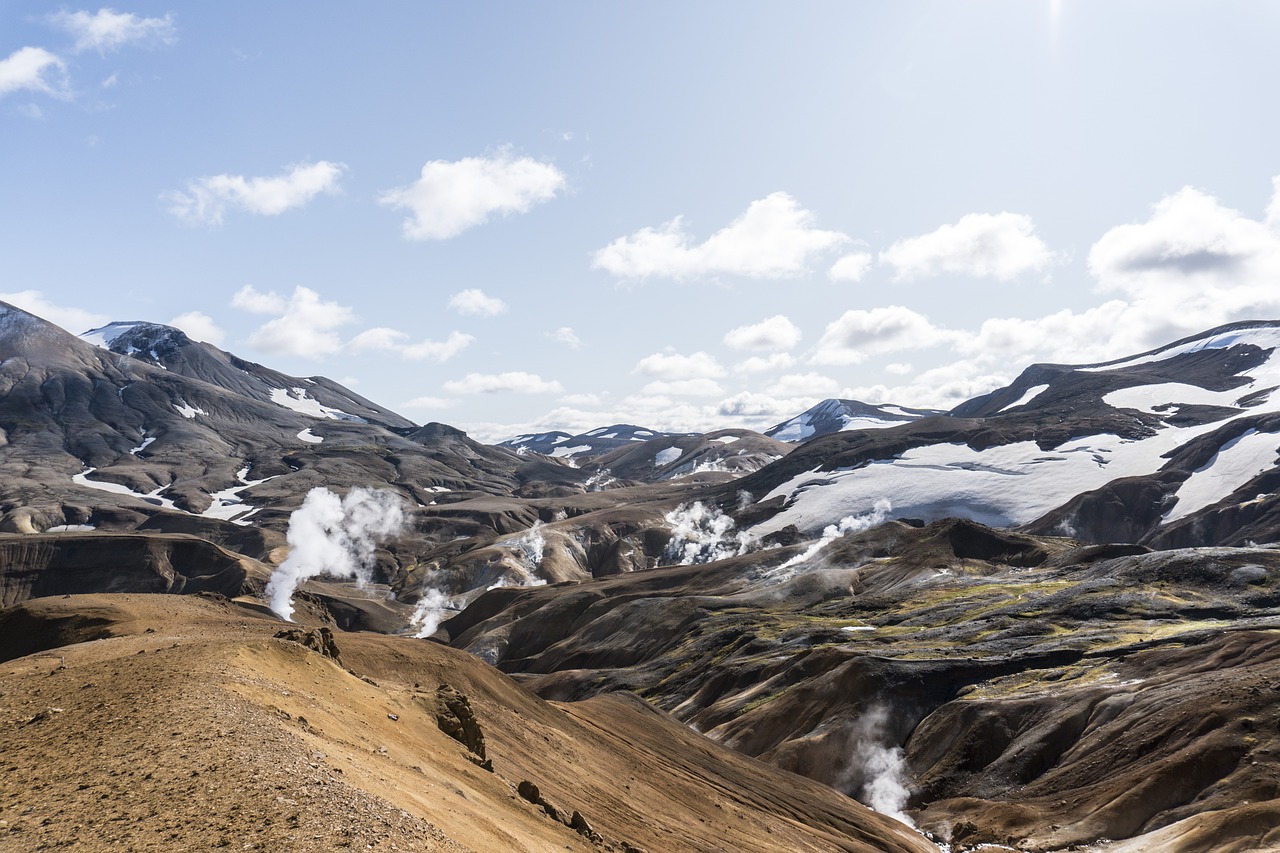Heading off on a blissful getaway to soak in the rejuvenating waters of hot springs sounds like a dream come true. As you contemplate all the joyful moments ahead of you, an important question arises ̵1; should you invest in travel insurance for your upcoming hot springs trip? Whether you’re a seasoned traveler or new to the world of exploration, this article will delve into the reasons why travel insurance might be a smart choice to ensure peace of mind during your immersive experience in these natural wonders.
What is travel insurance?
Travel insurance is a type of insurance coverage that provides financial protection against unexpected events and expenses that may occur during travel. It is designed to offer support and assistance when facing emergencies or encountering unforeseen circumstances while on a trip. Travel insurance typically includes coverage for trip cancellation and interruption, medical emergencies, lost or delayed baggage, and emergency assistance services.
Coverage for trip cancellation and interruption
One of the main benefits of travel insurance is coverage for trip cancellation and interruption. This means that if you are unable to embark on your hot springs trip or if you have to cut it short due to a covered reason, such as illness or a family emergency, you may be eligible for reimbursement of your prepaid expenses, including flights, accommodations, and activities. This can provide peace of mind knowing that your financial investment is protected.
Medical coverage
Another vital aspect of travel insurance is medical coverage. In case you experience a medical emergency during your hot springs trip, travel insurance can cover the costs of necessary medical treatment, hospital stays, and even medical evacuation if needed. It is important to note that medical expenses can be incredibly costly, especially when traveling abroad or in remote locations. Travel insurance ensures that you are not burdened with hefty medical bills and can receive the care you need without worrying about the financial implications.
Lost or delayed baggage coverage
Losing your luggage or experiencing a delay in baggage delivery can be frustrating and inconvenient, especially when traveling to hot springs where you may need specific items like swimsuits or towels. Travel insurance can provide coverage for lost, stolen, or damaged baggage, as well as reimburse you for essential items if your baggage is delayed beyond a certain timeframe. This coverage helps alleviate the stress of dealing with lost belongings and allows you to enjoy your trip without the added worry of replacing necessary items.
Emergency assistance services
Travel insurance often includes emergency assistance services, which can be immensely valuable in challenging situations. These services typically provide access to a 24/7 helpline staffed by travel professionals who can assist you in various ways, such as arranging medical appointments, coordinating emergency medical evacuations, or providing legal and language translation services. Having access to emergency assistance services ensures that help is just a phone call away, no matter where you are in the world.
Why should you consider travel insurance for your hot springs trip?
When planning a hot springs trip, it’s important to consider the benefits of travel insurance. Here are some key reasons why you should seriously consider purchasing travel insurance for your excursion:
High risk of trip cancellation
Hot springs trips often involve making reservations well in advance, especially for accommodations, spa treatments, and other activities. Unfortunately, life is unpredictable, and unexpected events can lead to trip cancellations. By having travel insurance, you can safeguard your investment and recover your prepaid expenses if you need to cancel your trip due to a covered reason, such as illness, injury, or a family emergency.
Medical emergencies in remote locations
Hot springs are often located in remote and secluded areas, far away from major cities or medical facilities. In the case of a medical emergency, travel insurance can provide crucial financial coverage for emergency medical treatment, hospital stays, and medical evacuation to a more suitable healthcare facility. This can be particularly important if you are traveling to a foreign country where healthcare costs may be significantly higher than what you are accustomed to.
Possibility of lost or delayed baggage
When traveling to hot springs, you may have specific items that are essential for your comfort and enjoyment, such as swimsuits, towels, or hiking gear. If your baggage is lost, stolen, or delayed, travel insurance can provide coverage for the replacement of these items, ensuring that you can still make the most of your experience. Additionally, travel insurance can also offer reimbursement for the purchase of essential items if your baggage is delayed for a certain period of time.
Limited access to emergency services
Hot springs destinations are often located in areas that may have limited access to emergency services, especially in remote or rural locations. In case of an emergency, travel insurance can provide valuable assistance through its emergency assistance services. These services can help coordinate medical care, provide evacuation support, or offer guidance in navigating local emergency resources. Having access to a reliable network of assistance can make a significant difference in ensuring your safety and well-being during your hot springs trip.

Factors to consider when choosing travel insurance for your hot springs trip
Before purchasing travel insurance for your hot springs trip, it’s important to consider the following factors to ensure you choose the right coverage:
Type of coverage
Travel insurance policies offer different types of coverage, so it’s important to assess your needs and choose a policy that aligns with them. Consider whether you need coverage for trip cancellation and interruption, medical expenses, baggage loss or delay, or a combination of these options. Understanding the specific coverage provided by each policy will help you select the one that suits your requirements.
Coverage limits
Each travel insurance policy has coverage limits, which refer to the maximum amount the insurance company will pay for specific expenses. It’s crucial to review these limits to ensure they are sufficient to cover potential costs you may incur during your hot springs trip. For example, if you are traveling to a location with high healthcare costs, make sure the policy provides adequate coverage for medical expenses.
Pre-existing medical conditions
If you have pre-existing medical conditions, it’s essential to check whether these are covered by the travel insurance policy. Some policies may exclude coverage for pre-existing conditions, while others may offer optional coverage for an additional premium. Make sure to disclose accurate and complete medical information when purchasing travel insurance to avoid any issues with claim settlements related to pre-existing conditions.
Cancellation and refund policies
Read the cancellation and refund policies of the travel insurance provider carefully to understand the circumstances under which you may be eligible for reimbursement. Different policies have different criteria for trip cancellations and interruptions, so ensure that the policy aligns with your specific needs. Some policies may offer full reimbursement for cancellations due to covered reasons, while others may have specific exclusions or require supporting documentation.
Cost and benefits
Consider the cost of the travel insurance policy in relation to the benefits it provides. Compare different policies to find the one that offers the best value for your money. While cost is an important factor, it shouldn’t be the sole determining factor. Assess the coverage, limits, and reputation of the insurance provider to ensure you are getting adequate protection for your hot springs trip.
Different types of travel insurance policies available
Travel insurance policies are designed to cater to different types of travelers and their specific needs. Here are some common types of travel insurance policies available:
Single trip insurance
Single trip insurance provides coverage for a specific trip or vacation. It is ideal for individuals or families who only travel occasionally or have a one-time travel plan. This type of insurance covers the duration of the trip and offers protection against trip cancellation, medical emergencies, lost baggage, and other unforeseen events.
Annual multi-trip insurance
If you travel frequently, an annual multi-trip insurance policy may be more suitable for you. This type of policy provides coverage for multiple trips within a year, usually for a fixed annual premium. With annual multi-trip insurance, you can enjoy the convenience of continuous coverage without the need to purchase a separate policy for each trip.
Group travel insurance
Group travel insurance is designed for groups of people traveling together. Whether you are planning a family trip, a business conference, or a group vacation with friends, group travel insurance offers coverage for the entire group. It simplifies the process of obtaining insurance for multiple individuals and often comes with discounted rates compared to individual policies.
Specialized coverage for adventure activities
For those embarking on a hot springs trip that involves adventure activities, it’s important to consider specialized coverage. Adventure sports such as hiking, rock climbing, or water rafting carry additional risks, and standard travel insurance policies may exclude coverage for these activities. Specialized coverage ensures that you are protected during your adventurous pursuits and covers any potential injuries or emergencies that may arise.

Comparing travel insurance providers
Choosing the right travel insurance provider is crucial to ensure you receive reliable coverage and assistance when needed. Consider the following factors when comparing different travel insurance providers:
Customer reviews and reputation
Research customer reviews and ratings of various insurance companies to gauge their reputation and customer satisfaction. Look for positive feedback regarding claim processes, customer support, and overall experience. Reputable insurance providers with a history of excellent customer service are more likely to provide reliable coverage and timely claim settlements.
Claim settlement ratio
The claim settlement ratio indicates the percentage of claims that an insurance company has paid out compared to the total number of claims received. A higher claim settlement ratio generally indicates that the insurance company is reliable and fulfills its obligations to policyholders. Prioritize insurance providers with a high claim settlement ratio to increase the likelihood of a smooth claim process.
Network of healthcare providers
Check whether the travel insurance provider has a network of healthcare providers in the destinations you plan to visit. Having access to a wide network of hospitals and medical facilities can ensure prompt and quality medical care during emergencies. Additionally, some insurance providers offer direct billing to healthcare providers, eliminating the need for upfront payment or reimbursement claims.
Customer support and assistance
The level of customer support and assistance provided by the insurance provider is crucial, especially during emergencies. Ensure that the insurance provider offers a 24/7 helpline staffed by knowledgeable representatives who can assist you in various situations. Prompt and reliable customer support can make a significant difference when dealing with travel-related emergencies or uncertainties.
Cost and coverage options
Compare the cost and coverage options of different travel insurance providers to find the best fit for your needs and budget. Evaluate whether the premiums align with the coverage provided and if there are any additional costs or deductibles. Consider any optional coverage add-ons that may be beneficial for your hot springs trip, such as coverage for adventure activities or rental car protection.
Tips for buying travel insurance for your hot springs trip
When purchasing travel insurance for your hot springs trip, keep the following tips in mind to ensure you make an informed decision:
Research and compare policies
Take the time to research and compare different travel insurance policies to find the one that best suits your needs. Consider both the coverage provided and the reputation of the insurance provider. Look for policies specifically designed for hot springs trips or outdoor activities to ensure comprehensive coverage.
Consider your specific needs and activities planned
Assess the specific needs of your hot springs trip and the activities you plan to engage in. Determine if you require coverage for adventure activities, specialized medical conditions, or specific types of travel arrangements. By understanding your unique requirements, you can select a policy that provides adequate protection for your trip.
Read the fine print and understand exclusions
Carefully read the terms and conditions of the travel insurance policy, paying close attention to the exclusions and limitations. Some policies may have exclusions for certain activities, pre-existing medical conditions, or specific destinations. Understanding the exclusions will help you manage your expectations and ensure that you are aware of any limitations in coverage.
Consult with a travel insurance expert
If you are unsure about the intricacies of travel insurance or need assistance in selecting the right policy, consider consulting with a travel insurance expert. These professionals can provide expert advice tailored to your specific needs and help you navigate through the various options available.
Purchase insurance early
It is recommended to purchase travel insurance as soon as you have made your initial trip bookings. By purchasing insurance early, you can benefit from coverage for trip cancellation and enjoy peace of mind knowing that you are protected in the event of unforeseen events or emergencies. Waiting until the last minute to purchase travel insurance may limit your coverage options or result in higher premiums.

What to do if you need to make a claim
In the unfortunate event that you need to make a claim on your travel insurance policy, follow these steps to ensure a smooth and efficient process:
Contact the insurance provider
Notify your insurance provider as soon as possible after encountering an incident that may lead to a claim. Most insurance companies have dedicated helplines or online claim submission processes. Contacting the insurance provider promptly allows them to guide you through the claim process and provide any necessary assistance.
Gather necessary documentation
Collect all the necessary documentation to support your claim. This may include medical reports, police reports, receipts for expenses incurred, and any other relevant documentation as required by the insurance provider. Ensure that you have all the required paperwork to substantiate your claim and prevent any delays in the processing.
Follow the claim process
Carefully follow the claim process outlined by your insurance provider. This may involve completing claim forms, providing supporting documentation, or submitting evidence of the incident. Adhering to the claim process ensures that your claim is processed efficiently and increases the likelihood of a successful outcome.
Keep copies of all communications
Maintain copies of all communications between yourself and the insurance provider regarding your claim. This includes emails, letters, claim forms, and any other documentation exchanged. Keeping a record of all communications allows you to refer back to the information provided and serves as evidence in case of any disputes or discrepancies.
Seek assistance if needed
If you encounter any difficulties during the claim process or require assistance, don’t hesitate to reach out to the customer support team of the insurance provider. They should be able to provide guidance and answer any questions or concerns you may have. Seeking assistance when needed can help resolve any issues and ensure a smooth resolution to your claim.
Common exclusions in travel insurance policies
While travel insurance provides comprehensive coverage, there are certain exclusions that travelers should be aware of. These exclusions may vary depending on the insurance provider and the specific policy. Some common exclusions found in travel insurance policies include:
Pre-existing medical conditions
Most travel insurance policies exclude coverage for pre-existing medical conditions unless specifically stated otherwise. It’s important to disclose any pre-existing conditions accurately when purchasing travel insurance to ensure that you are aware of any limitations or coverage options available.
Adventure or extreme sports injuries
Standard travel insurance policies may exclude coverage for injuries sustained during adventure or extreme sports activities. Activities such as bungee jumping, skydiving, or mountaineering are often considered high-risk and may require additional specialized coverage. It’s crucial to check if your chosen policy includes coverage for these types of activities if you plan to engage in them during your hot springs trip.
Intentional self-inflicted harm
Travel insurance policies typically do not cover injuries or damages resulting from intentional self-inflicted harm. This includes self-inflicted injuries, substance abuse-related incidents, or engaging in illegal activities. It is important to exercise caution and be aware that these activities may void your insurance coverage.
Illegal activities
Engaging in illegal activities can lead to the denial of your insurance claim. If you are involved in any illegal activities that result in damages or injuries, your travel insurance provider may reject your claim. Respect local laws and regulations to ensure that you remain eligible for coverage.
War, terrorism, or civil unrest
Many travel insurance policies exclude coverage for injuries, damages, or trip cancellations resulting from acts of war, terrorism, or civil unrest. Before traveling to a destination that poses any potential risks, it’s essential to assess the safety conditions and consult your insurance provider regarding coverage.

Considerations for travelers with pre-existing medical conditions
If you have pre-existing medical conditions, it is even more vital to carefully consider your travel insurance options. Here are some considerations to keep in mind:
Disclose accurate medical information
When purchasing travel insurance, accurately disclose all your pre-existing medical conditions. Failing to disclose complete and accurate information may result in denial of claims related to those conditions. Provide details about any ongoing medical treatments, medications you are taking, and any recent medical procedures.
Check coverage for pre-existing conditions
Not all travel insurance policies automatically cover pre-existing conditions. Review the policy details to determine if your pre-existing conditions are covered or if you need to purchase additional coverage. Some policies may offer optional coverage for pre-existing conditions at an additional cost. Ensure that you fully understand the terms and coverage, including any waiting periods or exclusions for pre-existing conditions.
Consider specialized medical travel insurance
If you have complex or serious pre-existing medical conditions, it may be worthwhile to consider specialized medical travel insurance. These policies are tailored to individuals with specific medical needs and provide comprehensive coverage for pre-existing conditions. While specialized medical travel insurance may be pricier, it offers peace of mind and ensures that you are adequately protected during your hot springs trip.
Consult a healthcare professional
If you have any concerns or questions regarding your pre-existing medical conditions and travel insurance, consult a healthcare professional. A healthcare professional can provide guidance regarding suitable coverage options, necessary medical documentation, and precautions to take during your hot springs trip.
Conclusion
When planning your hot springs trip, travel insurance should be a consideration to ensure you have peace of mind and financial protection against unexpected events. Travel insurance provides coverage for trip cancellation and interruption, medical emergencies, lost or delayed baggage, and access to emergency assistance services. With factors such as the high risk of trip cancellation, medical emergencies in remote locations, and limited access to emergency services, travel insurance can be invaluable.
When choosing travel insurance for your hot springs trip, factors such as type of coverage, coverage limits, pre-existing medical conditions, cancellation and refund policies, and cost and benefits should be carefully considered. Different types of travel insurance policies, including single trip insurance, annual multi-trip insurance, group travel insurance, and specialized coverage for adventure activities, cater to different traveler needs.
Comparing travel insurance providers based on customer reviews, claim settlement ratio, network of healthcare providers, customer support and assistance, and cost and coverage options is essential in selecting a reputable insurance company. Tip for buying travel insurance include researching and comparing policies, considering your specific needs and activities planned, reading the fine print, consulting with experts, and purchasing insurance early.
In the event that you need to make a claim, following the proper claim process, gathering necessary documentation, and seeking assistance if needed ensures a smooth experience. However, it’s important to be aware of common exclusions in travel insurance policies, such as pre-existing medical conditions, adventure or extreme sports injuries, intentional self-inflicted harm, illegal activities, and war, terrorism, or civil unrest.
Travelers with pre-existing medical conditions should disclose accurate medical information, check coverage for pre-existing conditions, consider specialized medical travel insurance, and consult healthcare professionals. By understanding the importance of travel insurance and considering the various factors involved, you can make an informed decision and enjoy a worry-free hot springs trip.

